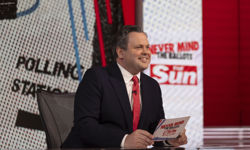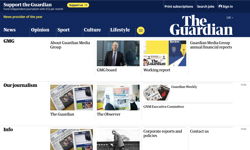Séamus Dooley, NUJ acting general secretary, challenged the use of wraparound advertising, featuring newspaper mastheads in a manner which may suggest editorial endorsement for a political party or candidate. He said: “Journalists on local newspapers are gravely concerned at the blurring of lines between editorial content and advertising. There has been a strong backlash from readers as a result of wraparound advertising purchased by political parties and presented in a news format. The advertising is clearly designed to convey the impression of a news story and incorporates the paper masthead. There is a long, proud tradition of clearly differentiating between news and adverting, even in newspapers which adopt a partisan editorial line, and that principle should not be abandoned.
"Party political advertising is a legitimate feature of campaigning and there is no doubt that media organisations welcome the additional revenue. But, disguising advertising as news and effectively hijacking a newspaper masthead for any political party or candidate is an entirely different matter and is a cause of concern. The masthead should be a symbol of editorial independence and it is clear many readers, of all political persuasions and none, are opposed to this trend.
"Newspapers play an important role in shaping public opinion and can influence the outcome of an election. We will be monitoring the use of wraparound advertising very carefully and would ask editors and publishers to take steps to protect the editorial integrity of their titles.”
Chris Morley, Northern & Midlands organiser, said: “We are getting strong feedback from our members that these wraparound adverts for political parties are producing a very negative reaction from readers and are even calling in to question the long-held reputation of impartiality titles have earned over centuries.
“The newspaper companies are clearly desperate to bring in much-needed print revenue. The political parties know this and it would seem are driving a hard bargain on what these ads look like. The unspoken demand is that it should look as much like normal editorial as possible so that it can fool the casual reader that it is the work of journalists, not political spin doctors.
“From what I have seen, tags telling readers that these front page wraparounds are ads fail to be prominent enough – or in some cases are missing altogether – and the type and layout is too much like the original journalism inside the paper. This is dangerous territory for newspaper companies to concede and far more editorial judgment should be exercised in acceptance of these ads which are potentially toxic to affected titles in some communities.”
The union brought up the issue with the Trinity Mirror board at its annual general meeting last week. Simon Fox, chief executive officer, defended the right to take the advertising revenue, but said he would look into examples where the distinction between advert and editorial was not clear.










